Your cart is currently empty!
14 Month Old Milestones
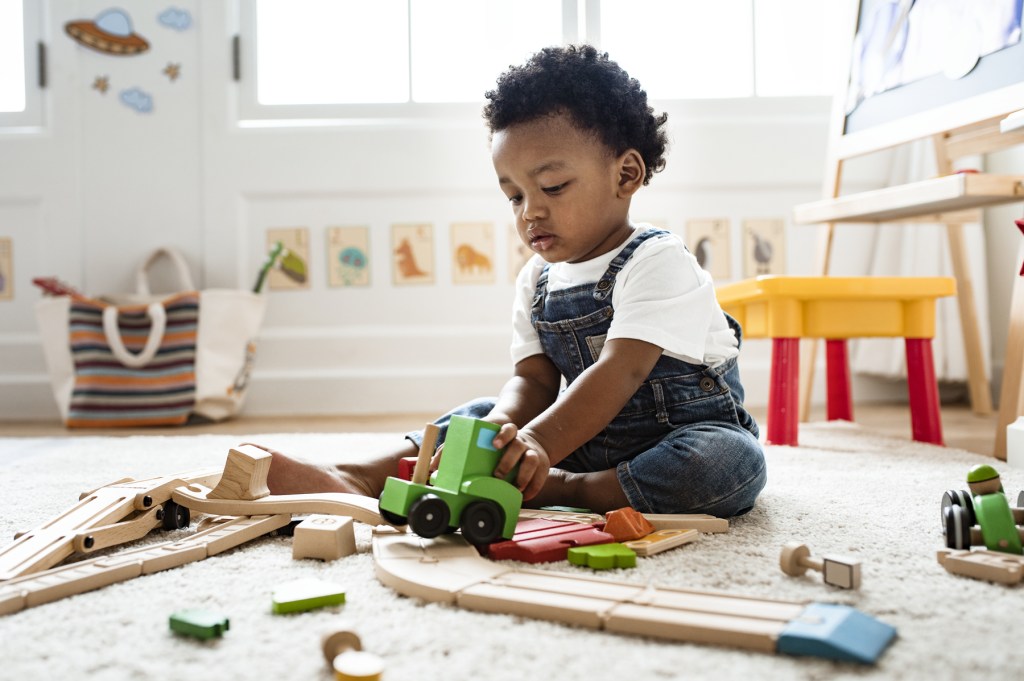
For your 14-month-old, there’s no greater teacher than play.
Here’s What You Need To Know:
- Your baby is gaining more control of their thumb and forefinger.
- Now is the perfect time to let your baby try to self-feed with a spoon. It might be messy at first, but it’s a great way to help your baby be active at mealtime.
- Milk, Please: If you haven’t already started your baby on dairy, research shows now is a great time to start.
- As your baby is learning how to manipulate objects, be sure to mirror the behavior you want them to follow. Try showing them how to stack blocks.
- Consistency is key for little brains at this age.
Play All Day
Your toddler’s world is becoming bigger and bigger each day. Every object is a new chance to discover; to push, pull, poke, or grab. When at the playground or with a playgroup, you might notice that your toddler is far more interested in playing with their toys than with their peers. When hosting a playdate, remember that sharing is a process. At this stage, your toddler is still self-oriented. Parallel play is a wonderful opportunity to help your toddler label emotions, develop social skills, and build compassion. These are the tools that will help them develop empathy.
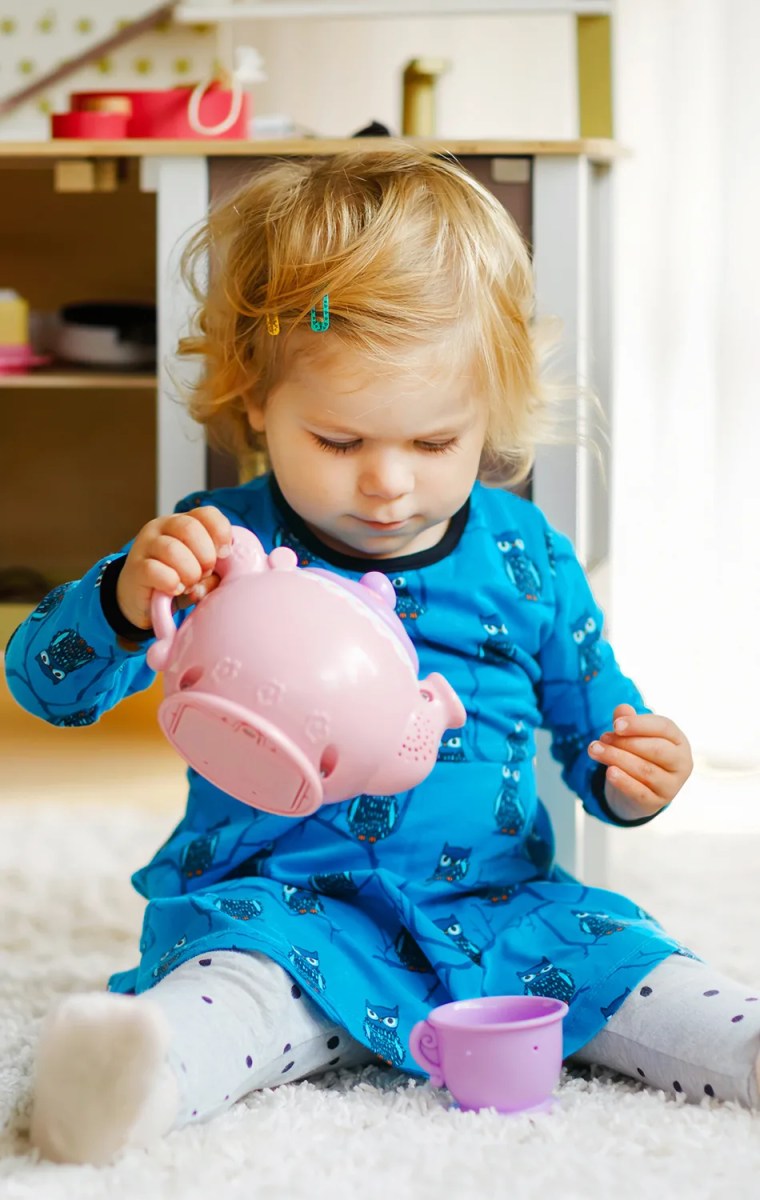
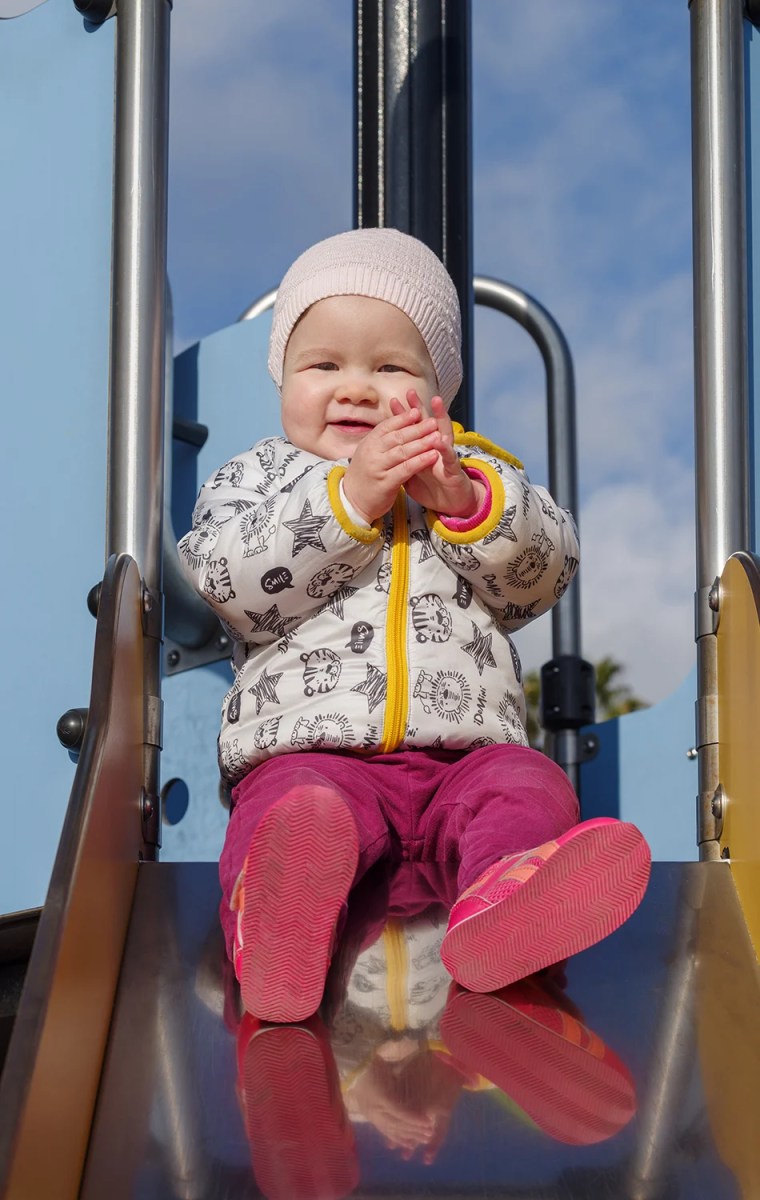
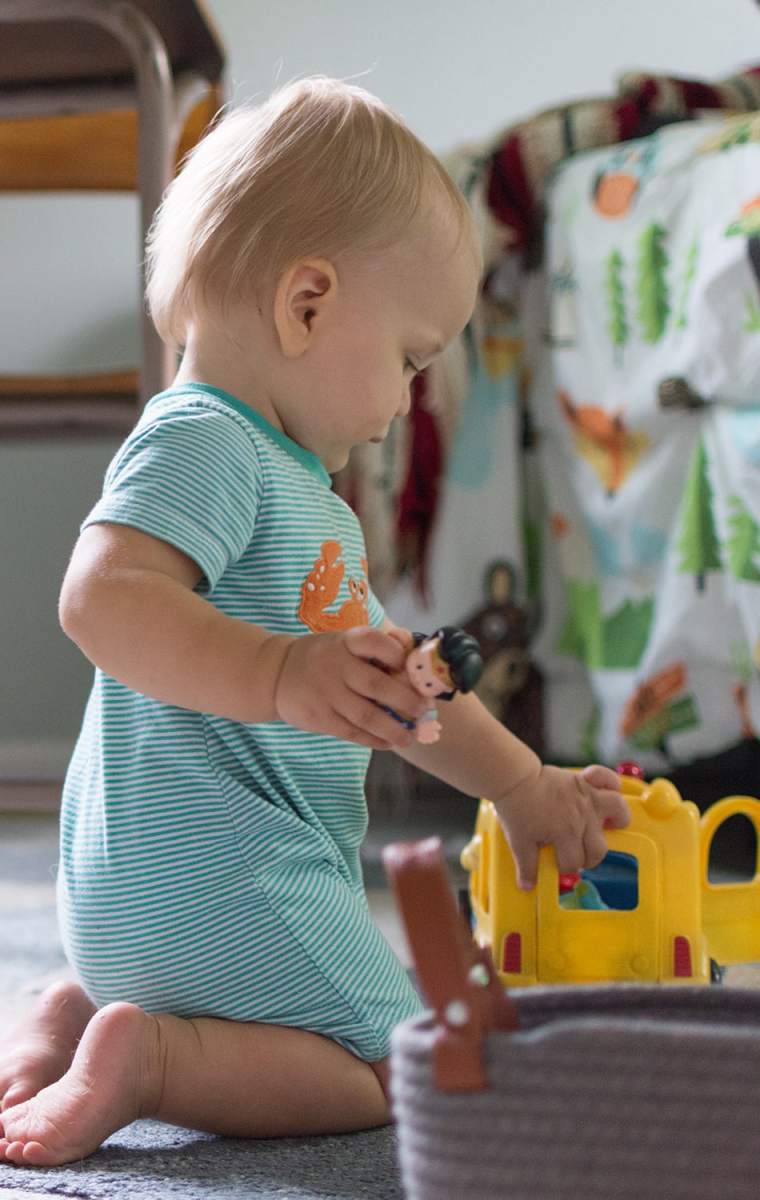
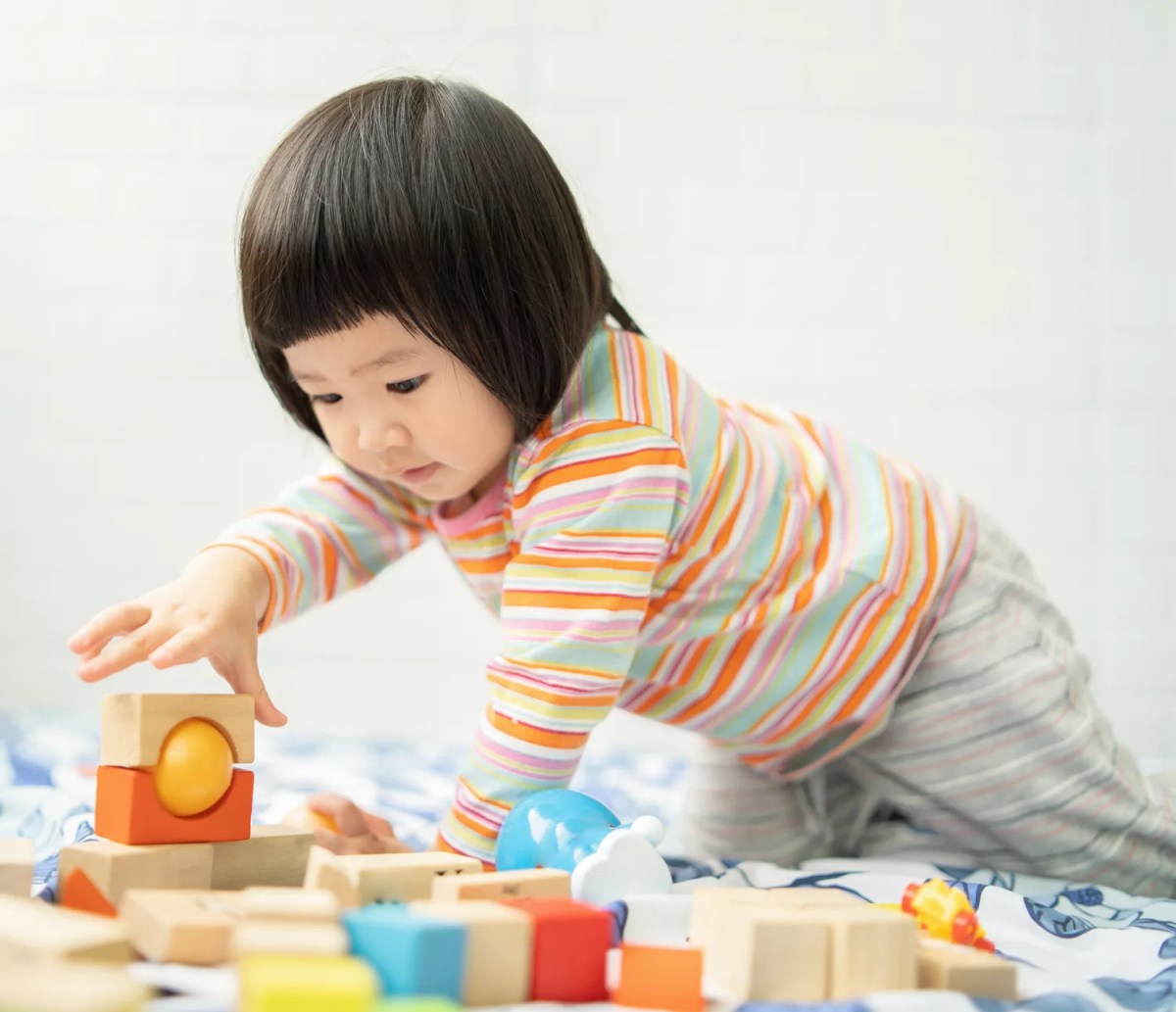
1. Your Baby’s Brain
It’s possible you’re already familiar with your baby’s first words (they can likely say three to five). Though it’s perfectly normal for them to emerge closer to 15 months. At this stage, what’s most important is consistency and order. When your baby doesn’t know what’s coming, they exert a ton of brain energy and focus to figure out what’s going on. This eventually results in anxious behavior or tantrums. Create a few routines they can expect, whether that be feeding time, nap time, or even play time!
2. Your Baby’s Bones
Your baby’s teeth are coming in just in time for self-feeding. On average, 14-month-old babies have 8 teeth. Dental hygiene should begin as soon as their first teeth appear. Their teeth can be “brushed” with a clean, damp washcloth or a finger brush with a rice-sized amount of fluoride toothpaste. Decayed baby teeth can actually interfere with good nutrition and speech development.
3. Your Baby’s Immunity:
You have at least a decade before your sweet angel starts mouthing off, but at 14 months, oral sensory seeking behavior, or “mouthing,” is normal. A form of self-soothing, it’s also how babies learn and show interest in the world around them. Don’t stress. Part of building a healthy gut biome means letting the healthy bacteria in. Naturally, the more on the move they are, the more that ends up in their little mouths. Exposure to germs builds up a baby’s immune system.
However, remain cautious of small objects and redirect their attention if they’re getting grabby with objects that present choking hazards. Babies respond well to redirection over commands.
4. Your Baby’s Sleep:
At this age, your toddler should get between 12-14 hours of sleep. This will be split up between night and 1-2 naps during the day. At this age, sleep is still their primary brain activity, and will continue to be an important part of development and function through their first 1,000 days.
If your child is experiencing sleep regression, try to get them back into a consistent schedule. It gets harder as they get older, but as with most things baby, consistency is key.
More than Words
At this stage, your babe is especially adept at word discovery, even if seemingly by accident: think of a word that sounds like what it means (like bump) and a 14-month-old is likely to be attuned to its meaning. Novel words help to both shape a toddler’s vocabulary and deepen their association with objects and understanding of others’ intentions.
In one notable study, researchers turned a light off with their forehead rather than their hand, and observed if toddlers imitated the behavior. Researchers found that when they used a novel word (I’m going to “blick”) to describe the action, toddlers were more likely to imitate than when researchers simply called attention to it. Discovery is the name of the game for 14-month-olds, and using novel words can be productive in ways that go beyond building vocabulary.
Parallel Play:
As previously mentioned, toddlers playing side-by-side, but not influencing one another’s behavior, is known as ‘parallel play.’ At 14 months, parallel play is a wonderful opportunity to help your toddler label emotions, develop social skills, and build compassion.
Building Blocks:
Stacking blocks is a great way for your toddler to build spatial awareness, test cause and effect, and explore some fine hand and finger motor skills. The block may not be the most flashy toy in your 14-month-old’s collection, but it’s dynamic and open-ended, giving your toddler the space to construct and imagine. From the block’s weight and feel, to the ways they can tumble or grow tall, every part of the block is a discovery at this stage. Toddlers develop their hand-eye coordination by testing new ways of combining, stacking, and lining up blocks.
You may notice that your baby kicks down the towers they build. They are currently learning the concept of “creating” and will soon stop kicking down their creations. Until then, they’ll continue to find it amusing every time you are forced to rebuild.
In later block building stages, tell your child a story: Whether it’s a castle or an emerging city, giving your child a context for building structures is both fun and beneficial.

Summary
You might notice that your baby is far more interested in objects than playing with other babies. This is totally normal. As there is so much going on. Grabbing and picking up objects is still part of their ongoing development. Your baby is still mastering their motor skills and pincer grasp – making this the perfect time for your little one to self feed with a spoon!
Spoon feeding oneself is an important developmental milestone, and one reason experts say parents shouldn’t rely too heavily on pouches. Your toddler is learning non stop at this stage, which is why the Yumi Milestone Plan focuses on foods rich in brain boosting vitamins and minerals.











